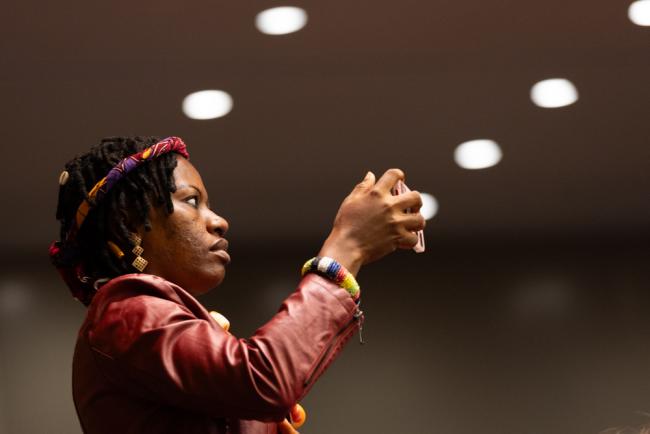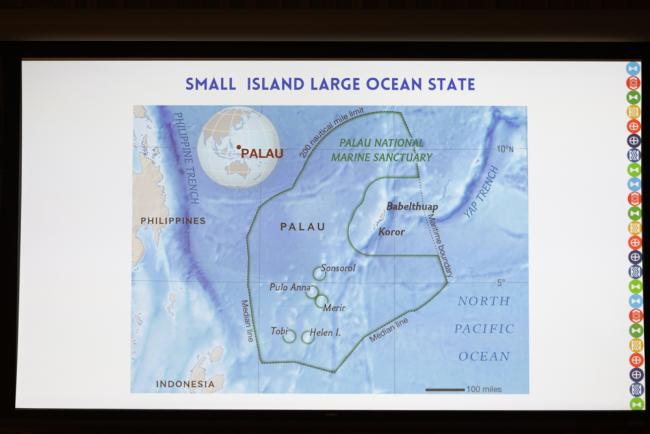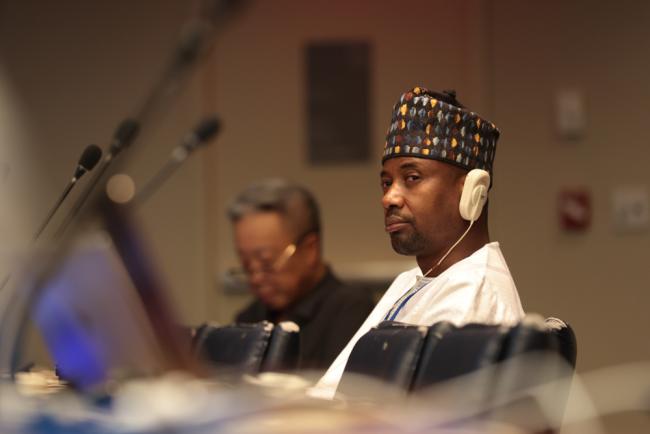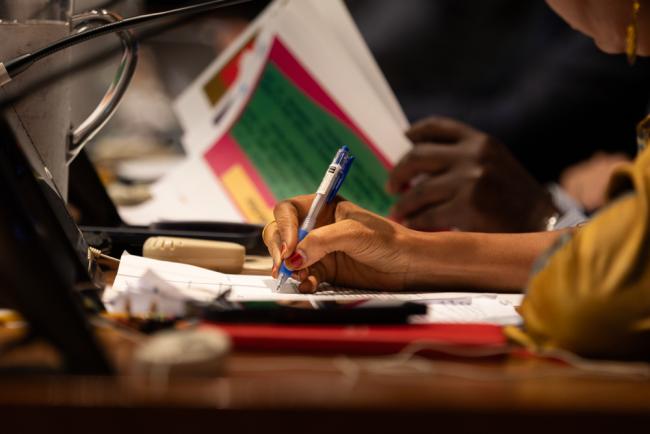Over a week of dialogue considering the world’s path towards a just and resilient future, calls for “putting people at the heart” of the 2030 Agenda on Sustainable Development have been front and center. On day five of the 2024 High-level Political Forum on Sustainable Development (HLPF), the voice of the people was heard loud and clear in a session dedicated to the perspectives of Major Groups and other Stakeholders (MGoS).
Want to dig deeper into today's talks? Read the full Earth Negotiations Bulletin daily report.
The MGoS at HLPF comprise 21 autonomous and self-organized civil society groups and societal constituencies – some of which have deep roots in Indigenous, grassroots, and other social movements that laid the groundwork for advocacy and resistance in the face of unsustainable development. Moderator Oliver Henman, Co-Chair of the MGoS Coordination Mechanism, recalled his work as a child, remarking that he did not expect to “still be campaigning for the integration of social and ecological objectives thirty years later.”
Maritza Chan-Valverde, Permanent Representative of Costa Rica to the UN, emphasized the UN Charter’s reference to “we the peoples” is a reminder that the UN is not exclusively an organization of states. She described the rise of the #UNMute campaign – a coordinated effort that has attracted more than 50 Member States and more than 300 MGoS organizations – to enhance civil society inclusion in UN and other multilateral processes.
The remainder of the day was dedicated to ten countries’ Voluntary National Review (VNR) presentations. Palau, Belize, Mauritania, Eritrea, and Syria presented their second VNRs, while Georgia, Kenya, Chad, Zimbabwe, and Samoa presented their third VNRs. The reviews are a key peer reporting and implementation mechanism for the HLPF, often underlining the dynamic progress – as well as the challenges – that accompany local, national, and regional narratives, iterations, and approaches around the 2030 Agenda.
The ten countries reported on progress made in recovering from the COVID-19 pandemic, efforts towards peacebuilding and democracy, and policy and planning innovations to tackle the SDGs under review this year, as well as their interlinkages to the other SDGs.
Other issues highlighted in the presentations included:
- struggles faced by youth in small island developing states regarding the loss of their cultural heritage as a result of globalization, climate change, and migration;
- localization of the SDGs through linkages between SDG indicators and domestic policy guidance and budgetary processes;
- increases in poverty and a reversal of development resulting from conflict and insecurity; and
- the social integration of internally displaced persons and refugees, including through the provision of health, education, and social services.
Focus was also given to the persistent challenges that countries still face, notably linked to geopolitical tensions and declining fiscal space in many regions. The MGoS’ deep engagement and stakes in the success of the 2030 Agenda was further articulated in the discussions following each presentation. Civil society constituency representatives seized the opportunity to quiz country delegations on issues ranging from their commitment to inclusiveness in the treatment of their LGBTI+ constituents, to their governments’ responsibility in inadequate or undermined progress towards the SDGs.
To receive free coverage of global environmental events delivered to your inbox, subscribe to the ENB Update newsletter.
All ENB photos are free to use with attribution. For HLPF 2024, please use: Photo by IISD/ENB | Kiara Worth.
Perspectives from Major Groups and Other Stakeholders: Partnerships for Transformative and Urgent Actions
Voluntary National Reviews

The VNR presentations open with a traditional greeting from Dee Raya Antonio, Youth Representative, Palau

Palau's VNR report highlights their commitment to achieving the SDGs while sustaining cultural heritage


























































